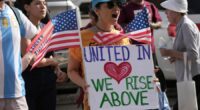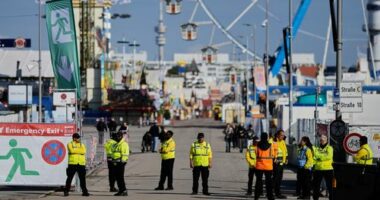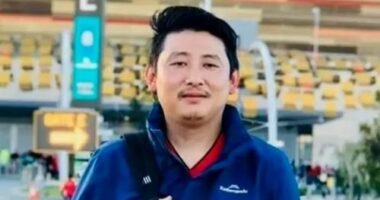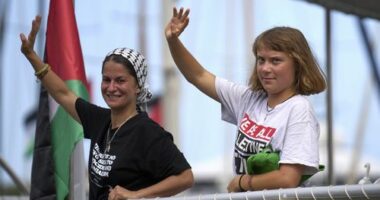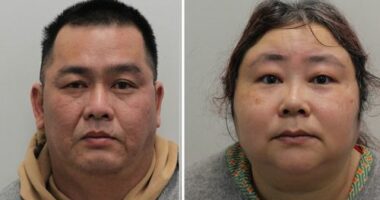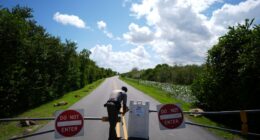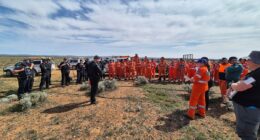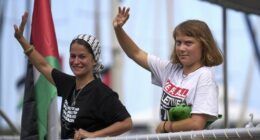Share this @internewscast.com
“The smell of moisture filled the air, and the dim lighting barely illuminated the suffocating space.”
Every corner of that place echoed with fear, loneliness, and the looming threat of torture.
SBS News has changed his name due to safety concerns.

Ahmad’s work as a civil society activist focused on human rights, including the rights of women to education and employment. Source: Supplied
Hazaras targeted
According to a 2022 United Nations report, the Taliban has targeted civilian and military officials, human rights defenders and media workers.

Ahmad and his organisation also opened up a boys school in 2019 to help boost education rates across the board. Source: Supplied
Ahmad knew this campaign put him and his family under threat and that he had to get them to safety.
In the last three decades, much of this persecution has been at the hands of the Taliban, with human rights groups telling the UN Human Rights Council in March 2025 that Hazaras continue to face total political exclusion, arbitrary killings, forced disappearances, sexual violence and displacement from their ancestral lands.
‘They tortured me mercilessly’
“Without any questioning, they immediately began beating me with their fists and cables. They tortured me mercilessly, both physically and mentally. From electric shocks to being hung upside down by my feet, they used every brutal and inhumane method.”
The sound of the blows, their hateful insults, and the cold concrete walls still echo in my memory.
Ahmad has provided SBS News with photos of the injuries he says he suffered during this torture session, which included bruising to his arms and a wound on his face that required stitches.

Source: Supplied
“They attempted to force me to confess that I had worked as a civil activist. However, I did not confess because I knew that if I admitted it, they would not release me and I would likely be killed,” he says.
After 16 days of detention, Ahmad was eventually released in September 2021 after being forced to provide a written and video-recorded pledge that he would never speak about this experience and never make any statements or take any actions against the Taliban.

Source: Supplied
Weeks later, he hired a smuggler to help him, his parents and his brother cross the Pakistani border.
“We have repeatedly asked for at least an update or any news regarding our application … Despite contacting them several times, neither I nor my cousin, who lives in Australia, have received any personal response or update from the Department of Home Affairs. Just auto-replies, nothing more,” he says.
A ‘difficult and frustrating process’
The UN’s refugee agency reports there are more than 3.5 million Afghans living in Pakistan, including about 700,000 people who came after the Taliban returned to power in 2021. The UN estimates that half of these migrants are undocumented.

Ahmad’s living conditions in Quetta are basic due to poverty and the need to move quickly to evade police. Source: Supplied
George Lombard, a senior solicitor at Playfair Legal who has assisted Afghan-Australians with families stuck in Pakistan, says humanitarian visa applicants often need to wait several years before their cases are considered.
“Underneath it all is the Australian government, which probably doesn’t have the resources to even process the applications, let alone to reach in and find the people who are the most deserving and help them get visas.”
It’s a really, really difficult and frustrating process.
Lombard says it can be difficult for those like Ahmad and his family to know what to do when faced with persecution at home and a lack of security elsewhere.
“People just don’t know whether to go forward or back. People are desperately trying to stay in Pakistan in the hope that they’ll sooner or later be approved. Given the volume, it’s not something that’s easily resolved,” Lombard says.
A final plea to the Australian government
“The work that I’m doing right now, it is because I have walked in their shoes.”

Maryam Zahid has advocated for Afghan women at the United Nations Commission on the Status of Women. Source: Supplied
Zahid says many in the Afghan Australian community have family in Pakistan facing the same challenges as Ahmad.
SBS News understands the department does prioritise applications by ethnic minorities, such as the Hazaras, when it comes to assessing humanitarian visas, as well as other vulnerable groups, including women and girls and LGBTIQ+ applicants.
This week, the International Criminal Court issued arrest warrants for two Taliban leaders, accusing them of the persecution of women and girls.
